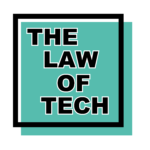
How is machine learning used within the legal domain to predict court decisions, and what concerns does this raise?
As courts increasingly adhere to the directive to promote accessibility and re-use of public sector information and publish considered cases online, the door for automatic analysis of legal data is wide open. The idea of automation and semi-automation of the legal domain, however, is not new at all. Legal technology is rapidly gaining interest, and many law firms and government organisations already use tools to automate, speed up and simplify their work. One of the subjects that the field of AI and Law is fascinated with is making a fair and unbiased decision-making system that would be able to assist judges in their decision-making, or even replace them in courts. While believed to be beneficial in many respects, this inevitably raises a number of concerns that demand attention.
While, at present, techniques from machine learning have not often been used in the legal domain, at the University of Groningen, The Netherlands, a computer program was written that analyses texts of decisions by the European Court of Human Rights (ECtHR) available on the Court’s website and predicts whether any particular article of the ECHR was violated. Based on this prediction algorithm, Juri Says was created, an online application that predicts judgments of the ECtHR. To learn more about Juri Says, check out the application here: https://jurisays.com/.
In this episode of The Law of Tech Podcast, I explored the use of machine learning to predict court decisions of the ECtHR with Masha Medvedeva, a computational linguist and an interdisciplinary PhD candidate at the Centre for Language and Cognition and at the Department of Legal Methods at the University of Groningen, The Netherlands.
Follow The Law of Tech on LinkedIn and Twitter to get behind the scenes and receive episode insights. If you enjoyed the episode, please make sure to share it with your network, and feel free to contact Hadassah Drukarch at thelawoftech@gmail.com for feedback and suggestions for future episodes.
